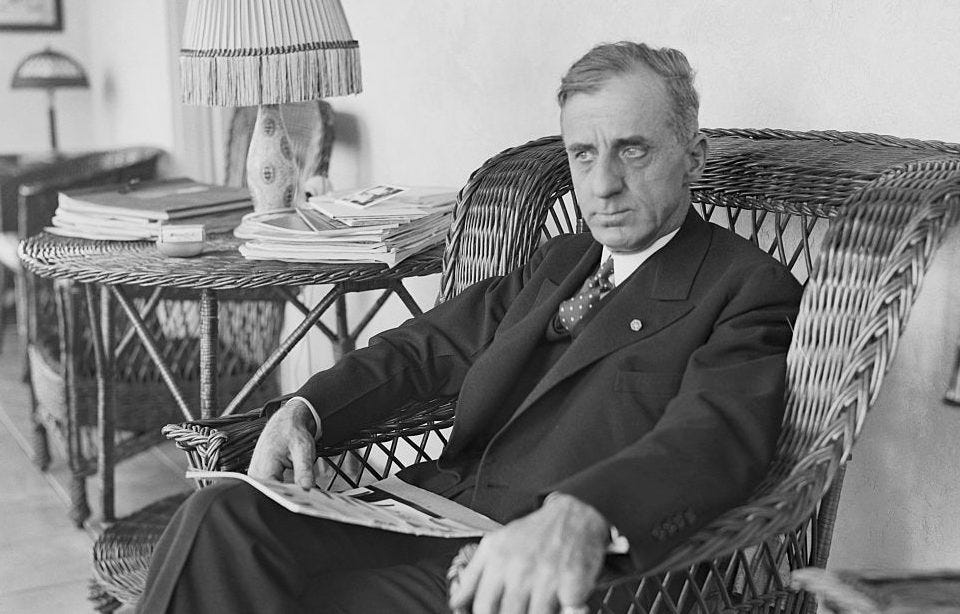Smedley Butler: The Marine General Who Exposed War Is a Racket
Imagine a man who had a chest full of medals, a career spanning decades in the service of his country, and a reputation as a fearless warrior. Now, picture that same man turning his back on the very system he served, declaring that the game he played was rigged. That man was Major General Smedley D. Butler, and his revelation about war, as a “racket,” still resonates with shocking clarity today. But how did a decorated Marine, a symbol of American heroism, come to such a radical conclusion? And why does his perspective, born from the battlefields of the world, matter so much now?
A Life Forged in Conflict
Smedley Butler was, without a doubt, a man of action. He served in the U.S. Marine Corps for an astounding 34 years. From the Boxer Rebellion in China to interventions in Central America and the Caribbean, Butler saw it all. He fought in the trenches, led men in combat, and earned two Medals of Honor for his bravery. He was the embodiment of the American fighting spirit, a true believer in the ideals of duty and service.
But as Butler's career advanced, something began to shift. He witnessed the human cost of war, the lives shattered, the families destroyed. He saw firsthand how the promise of glory and national pride often obscured a darker reality. Slowly, a profound disillusionment began to take hold.
The Unveiling of the Racket
The turning point came with his outspoken criticism of war, particularly in the context of the First World War. It was then that Butler began to truly see the forces at play. In his iconic pamphlet, “War Is a Racket,” published in 1935, he laid bare the ugly truth behind the headlines.
The pamphlet paints a picture of war not as a noble endeavor, but as a highly profitable enterprise for a select few. Who benefits from war? He highlighted, and with a growing frustration, those behind the scenes, the ones who often escape the frontline: the industrialists, the arms manufacturers, and the bankers.
“I spent 33 years and four months in active service as a member of our country’s most agile military force – the Marine Corps. And during that period I spent most of my time as a high-class muscle man for Big Business, for Wall Street and for the bankers. In short, I was a racketeer, a gangster for capitalism.” – Smedley D. Butler
This wasn’t just a casual observation; it was a searing indictment. Butler exposed how these groups profited handsomely from war, while ordinary soldiers paid the ultimate price. He showed how war provided opportunities for massive profits, with the government often footing the bill. This includes everything from the production and sale of weapons to the reconstruction efforts that followed the fighting.
The Propaganda Machine
Another core revelation of Butler's was the role of propaganda in shaping public opinion and justifying war. How were citizens convinced to support conflicts that ultimately benefited a select few? The answer, he argued, lay in carefully crafted narratives that stirred patriotism, fear, and a sense of moral obligation.
He understood that war required a willing populace, and propaganda was the tool used to manufacture that consent. The media, in his view, became complicit in the effort, often portraying conflicts in a way that served the interests of those who stood to gain financially.
The following video provides a deeper dive into the historical context and relevance of Butler's work. It is worth exploring the depth of the ideas outlined in this article.
A Radical Proposal: Making War Unprofitable
What could be done to stop the cycle of war and profiteering? Butler offered a radical solution: make war unprofitable.
His ideas included:
Nationalizing the war industry to eliminate private profit.
Limiting military spending.
Ensuring that war veterans were cared for adequately.
Butler's proposals were not just a critique; they were a blueprint for systemic change. They were an attempt to fundamentally alter the incentives that drove nations to war.
Why Smedley Butler Still Matters
Why should we care about Smedley Butler today? Because the issues he raised are as relevant now as they were in the 1930s. The military-industrial complex, the influence of powerful financial interests, and the use of propaganda to justify conflict – these are all still very much a part of the global landscape.
Smedley Butler's legacy challenges us to question the narratives we are fed. It encourages us to look beyond the surface, to identify the true beneficiaries of conflict, and to demand accountability from those in power. His perspective provides a valuable lens through which to view the world, urging us to critically evaluate the forces driving wars and to strive for a more peaceful future.
Unlock deeper insights with a 10% discount on the annual plan.
Support thoughtful analysis and join a growing community of readers committed to understanding the world through philosophy and reason.
The Enduring Questions
What will be the cost of war? What interests lie behind the headlines? Who truly benefits when the bombs drop and the soldiers march? These questions, born from the experiences of a Marine General, are as critical now as they were when Smedley Butler first spoke out. Reflect on those questions, and consider: are we doomed to repeat the past, or can we forge a new path, one where peace, not profit, is the ultimate goal?



